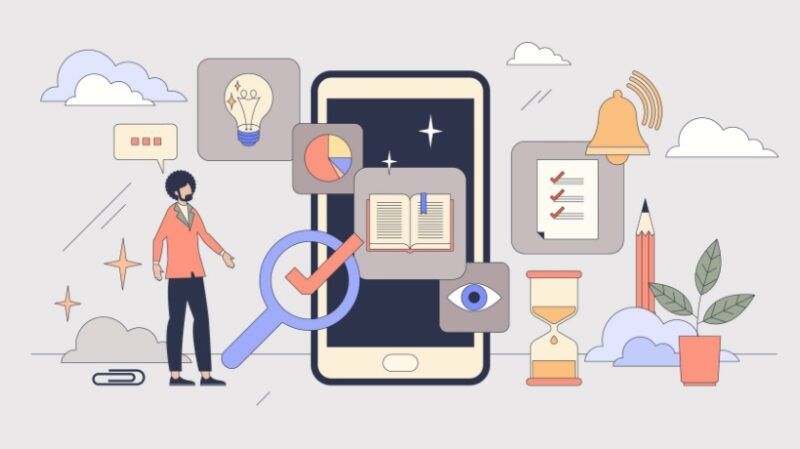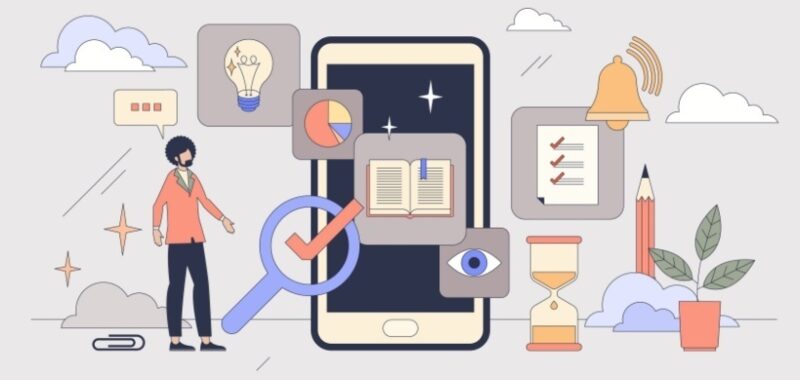
The Future Of Employee Training
Microlearning in the workplace is an efficient way to enhance training by delivering short, focused modules that improve knowledge retention and reduce cognitive overload. With a 17% boost in learning efficiency, it’s a cost-effective, scalable solution ideal for today’s fast-paced work environment.
The New Workforce Demands Microlearning
The workplace is evolving, and with it, so are employee expectations. Today’s workforce—particularly younger generations—tend to lean towards faster, more engaging learning experiences that fit into their busy schedules (and shorter attention spans). Traditional, lengthy training sessions just don’t resonate as they used to. Instead, employees are looking for something that is more streamlined: microlearning.
What Is Microlearning?
Microlearning is a learning approach designed to deliver short, bite-sized lessons. We’re talking modules that run between 7 to 15 minutes, so employees can learn and retain important info fast, without feeling overwhelmed. Whether it’s improving individual skills or boosting company-wide performance, microlearning is proving to be the go-to strategy for organizations that want to stay ahead.
What Microlearning Isn’t
Microlearning isn’t just about shrinking courses or cutting them in pieces. It’s about focusing content on the essentials that directly impact performance. While it works well alongside deep learning, its primary goal is to help employees absorb crucial information more effectively by reducing cognitive load.
What Is The Microlearning Theory?
Microlearning theory comes from the work of Hermann Ebbinghaus, a German psychologist who studied how memory works. He developed the “forgetting curve,” which shows how quickly people forget new information. Without regular review, most of us only remember about 21% of what we learned after a month.
Microlearning helps solve this by delivering information in small, bite-sized lessons. By breaking content into short chunks and reviewing them regularly, learners can remember more of what they learn. This “little and often” approach makes it easier to retain information over time, helping learners stay on top of new skills or knowledge.
Why Microlearning Is The Future Of Workplace Training
1. Microlearning Is 17% More Efficient
According to a study in the Journal of Applied Psychology (2017), breaking down lessons into bite-sized chunks increases learning efficiency by 17% [1]. It’s not just about shorter sessions—it’s about better retention. Microlearning combats cognitive overload, making it easier for employees to transfer what they’ve learned to the workplace. The result? Higher knowledge retention and faster application of skills.
2. Cost-Effective And Scalable
Microlearning isn’t just faster—it’s cheaper. The short modules are quicker and less expensive to develop. Plus, since they’re typically delivered online or in apps, companies save on travel, trainers, and classroom costs.
3. Supports Just-In-Time Learning
Microlearning works great for Just-In-Time (JIT) learning. Whether employees need a quick refresher before starting a new task or are reviewing safety protocols on the go, microlearning provides exactly what they need when they need it.
4. Mobile-Friendly Learning On The Go
Given the rise of remote work, employees need training that fits their lifestyle. Microlearning is inherently mobile-friendly, making it easy for your team to access training on their phones, whether they’re at a job site or at home.
5. Closes Skill Gaps Fast
The pace of workplace change, especially post-pandemic, has created skill gaps in many industries. Microlearning helps bridge those gaps quickly, allowing employees to acquire new skills and apply them right away, ensuring businesses stay competitive.
How Microlearning Boosts Workplace Performance
Microlearning doesn’t just improve efficiency—it drives real results. Here’s how:
- Better knowledge retention
By delivering content in small, spaced-out bursts, microlearning helps employees retain information longer. No more forgetting key points a week after a training session. - Higher engagement
The shorter, interactive nature of microlearning makes learning more enjoyable. Employees stay motivated and are more likely to complete their training. - Increased productivity
Less time in training means more time on the job. Employees can quickly apply what they’ve learned without the lengthy interruptions caused by traditional training
Digital Platforms Powering Microlearning Success
For microlearning to be effective, the right digital platform is essential. Tools can offer personalized, interactive experiences that keep employees engaged. Features such as the ones listed below help:
- Nudge-learning capsules
For weekly reminders to reinforce key lessons. - Error anticipation modules
Help employees learn how to avoid common mistakes. - Mobile accessibility
Ensuring learning can happen anywhere, anytime.
Platforms don’t just deliver content—they track progress, give feedback, and ensure a consistent learning experience for everyone.
Conclusion: The Future Is Micro
As the workplace evolves, so must training. Microlearning is a flexible, efficient, and cost-effective solution that today’s workforce demands. With research backing its 17% boost in efficiency and better retention rates, microlearning isn’t just an option—it’s a necessity. Ready to see what microlearning can do for your team?
References:
[1] How Training and Development Departments are Shifting Focus to make Learning Relevant for the 21st century

